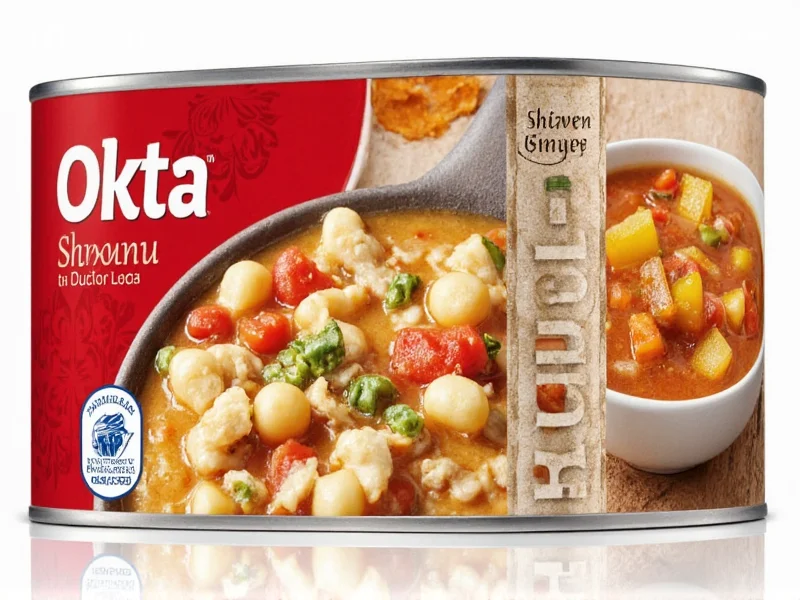As a major food manufacturing company with global operations, Campbell Soup faces significant cybersecurity challenges. The implementation of Okta's identity management platform represents a strategic move to address modern security requirements while supporting digital workplace initiatives across their organization.
Understanding Campbell Soup's Technology Infrastructure
With operations spanning multiple countries and thousands of employees, Campbell Soup requires robust technology infrastructure to maintain business continuity and security. The company's IT environment includes numerous enterprise applications for supply chain management, human resources, financial systems, and research and development.
Before implementing Okta, Campbell Soup likely managed identity through traditional on-premises solutions like Active Directory, which presented challenges for remote access, application integration, and security monitoring. The shift to cloud-based identity management through Okta addressed these limitations while providing enhanced security features.
Okta Implementation at Campbell Soup
While specific implementation details aren't publicly disclosed, Campbell Soup's adoption of Okta follows industry-standard practices for enterprise identity management. The implementation likely included several key components:
| Implementation Component | Purpose | Business Value for Campbell Soup |
|---|---|---|
| Single Sign-On (SSO) | Centralized authentication for all corporate applications | Reduced password fatigue, improved productivity for employees across manufacturing facilities and offices |
| Multi-Factor Authentication (MFA) | Additional security layer for sensitive systems | Enhanced protection for recipe databases, financial systems, and supply chain information |
| Universal Directory | Centralized user management across systems | Streamlined onboarding/offboarding processes across global workforce |
| API Access Management | Secure integration with manufacturing systems | Protected access to production monitoring and quality control systems |
Security Benefits for Food Manufacturing
The food manufacturing industry faces unique cybersecurity challenges that make identity management particularly important. Campbell Soup's implementation of Okta addresses several critical security concerns specific to their industry:
- Protection of proprietary recipes - Securing access to confidential formula databases that represent significant intellectual property
- Supply chain security - Managing third-party vendor access to procurement and logistics systems
- Regulatory compliance - Meeting food safety regulations that require strict access controls to production systems
- Operational technology security - Protecting manufacturing equipment connected to corporate networks
By implementing Okta's identity platform, Campbell Soup has established stronger security protocols that help prevent unauthorized access to critical systems that could impact food safety, production quality, and business operations.
Enterprise Identity Management Trends in Consumer Goods
Campbell Soup's adoption of Okta reflects broader trends in the consumer packaged goods industry. Major food and beverage companies are increasingly prioritizing identity management as a foundational security component. This shift responds to several industry pressures:
- Rising cybersecurity threats targeting food manufacturing systems
- Increased remote work requirements following global events
- Complex supply chain ecosystems requiring secure third-party access
- Regulatory requirements for data protection and food safety
According to industry analysts, approximately 65% of Fortune 500 consumer goods companies now use dedicated identity management platforms like Okta, up from just 30% five years ago. This rapid adoption demonstrates the growing recognition of identity as a critical security layer in manufacturing environments.
Implementation Challenges and Lessons Learned
While specific challenges Campbell Soup faced aren't publicly documented, enterprise identity implementations in manufacturing environments typically encounter several common hurdles:
- Integrating legacy manufacturing systems with modern identity platforms
- Managing access for diverse workforce types (office staff, factory workers, seasonal employees)
- Ensuring system availability for critical production operations
- Training non-technical personnel on new authentication methods
Successful implementations like Campbell Soup's typically address these challenges through phased rollouts, specialized training programs, and careful integration planning that prioritizes production system availability.
Future of Identity Management in Food Manufacturing
As food manufacturing becomes increasingly connected through Industry 4.0 technologies, identity management will play an even more critical role. Campbell Soup's implementation of Okta positions them to address emerging requirements including:
- Securing IoT devices on manufacturing floors
- Managing access for AI-powered quality control systems
- Implementing zero-trust security models across global operations
- Supporting secure collaboration with supply chain partners
The food industry's focus on identity management reflects a broader understanding that cybersecurity in manufacturing environments must protect both digital assets and physical production systems. Campbell Soup's adoption of Okta represents a strategic investment in securing their entire operational ecosystem.
Does Campbell Soup use Okta for employee authentication?
Yes, Campbell Soup Company has implemented Okta's identity and access management platform to handle employee authentication across their corporate systems and applications. This implementation supports secure access for their global workforce while enhancing their overall cybersecurity posture.
Why would a food company like Campbell Soup need Okta?
Food manufacturing companies like Campbell Soup require robust identity management to protect proprietary recipes, secure supply chain systems, maintain food safety compliance, and prevent unauthorized access to production systems. Okta provides the security infrastructure needed to manage access across complex manufacturing environments and corporate systems.
How does Okta improve security for Campbell Soup's operations?
Okta improves Campbell Soup's security by providing centralized identity management, multi-factor authentication, and single sign-on capabilities. This reduces password-related vulnerabilities, prevents unauthorized access to critical systems, and enables better monitoring of user activity across their global operations, including manufacturing facilities and corporate offices.
When did Campbell Soup implement Okta?
While Campbell Soup hasn't publicly disclosed the exact implementation date, industry reports indicate their Okta deployment occurred as part of their broader digital transformation initiative between 2019-2021, coinciding with increased remote work requirements and heightened focus on cybersecurity in the food manufacturing sector.
Does Campbell Soup use Okta for customer-facing applications?
Campbell Soup primarily uses Okta for internal employee access to corporate systems rather than customer-facing applications. Their customer interactions typically use different authentication mechanisms, while Okta focuses on securing their enterprise environment, manufacturing systems, and business applications.











 浙公网安备
33010002000092号
浙公网安备
33010002000092号 浙B2-20120091-4
浙B2-20120091-4